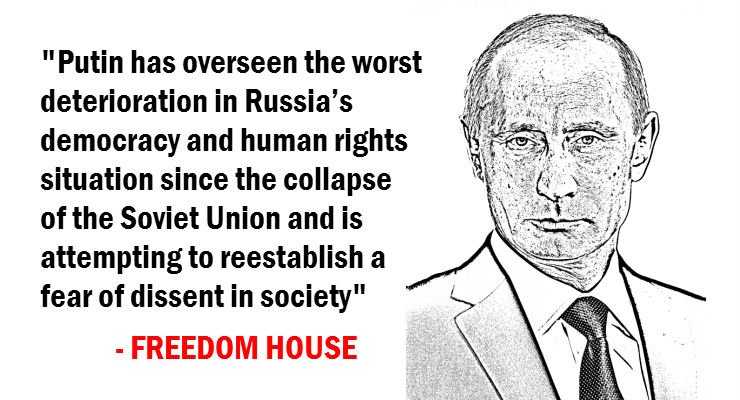 This article is published by DemDigest. Here is an excerpt:
This article is published by DemDigest. Here is an excerpt:
The poisoning in 2020 and imprisonment in 2021 of Alexei Navalny, a Russian opposition leader, marked the transformation of Vladimir Putin’s regime from a consensual autocracy into tyranny, where a small group of people exercise power without legal or constitutional constraints, the Economist’s Arkady Ostrovsky writes for The World Ahead 2022. As the Kremlin consolidates this transformation, two remnants of democracy inherited from the 1990s stand in its way. One is elections, the other is the freedom of the internet. Both are being steamrolled, he adds:
But the biggest problem it has is with YouTube, Google’s video-hosting platform. Though Google is increasingly compliant with Russia’s demands to remove content, it continues to host Mr Navalny’s films (above), which attract tens of millions of views. Blocking YouTube is problematic. The service is used by millions of Russians who have little interest in politics but would be outraged if it were unavailable. RTWT
Putin is trying to rebuild Moscow’s sphere of influence in its neighborhood, and using the two main tools at his disposal to do so: a still-strong military and energy exports that can be used to reward or punish countries across Europe as the Kremlin sees fit, the Wall Street Journal’s Gerald F. Seib adds. Fiona Hill, a Russia expert who served on the Trump administration’s National Security Council staff, notes that Mr. Putin embraces “the idea that the West is always trying to keep Russia down.” Again [as in China], the combination of strength and insecurity is potentially dangerous.
Read the full article here.
Leave a Reply